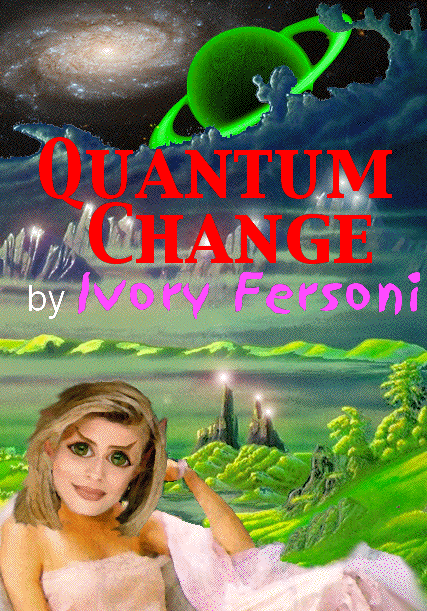 |
| What lies beneath. British Antarctic Survey |
Looking Deeper
I originally thought of the Nereids as a biological species that could physically interact with Earthlings, but we need to look deeper, past the deceptive level of superficial appearances. Humans can mistakenly believe the Grendels to be a biological organism, so it is likely that any human who seems to have been in contact with a Nereid was actually just interacting with a Grendel, an artificial life form. As shape-shifters, it is possible that the Grendels long ago carefully studied human reactions and adopted a physical form that we Earthlings find appealing.
I now realize that at least one group of Nereids crossed over into the Sedronic Domain from where they can have no physical interaction with we Earthlings. There may be other descendants of the original Nereids who still retain a biological form, but I can find no evidence of that.
Sedronic Domain
 |
| source |
Interventionists
 |
| source |
About a year ago I received some interesting information about the Interventionists from Angela by way of her "clone sister" Ivory. The key idea that Angela had stumbled upon is that the origins of the Interventionists goes all the way back to the ancient era before discovery of the Sedronic Domain. In that time, about 2 billion years ago, in a distant galaxy, several sentient species had managed to start developing an understanding of sedronic matter, but they were only taking the first steps toward converting themselves into artificial life forms that could take up residence in the Sedronic Domain.
 |
| source |
The Huaoshy examined themselves and their relationship with more primitive sapient species. Apparently the Huaoshy had themselves been something of a fluke. They had successfully developed a technologically advanced civilization that had not destroyed itself. Spreading through their galaxy, the Huaoshy found only a few living sapient species. They found the remnants of many more lost civilizations that had briefly flowered with technological exuberance then destroyed themselves with technological disasters. By sharing advanced technology with primitive cultures, the Huaoshy only accelerated their demise.
Bumpha
I previously had a glimmering of a concept: that there had been a biological species that we could call the "original Kac'hin". Angela called these beings the "bumpha", but I don't even know what language that term is from. I'll assume that the bumpha were an ancient species within the original Huaoshy interstellar empire and that they played an important role in the faction that gave rise to what we now think of as the Interventionists. Ivory suggested that the best translation of "bumpha" is "renegade", a term applied to the earliest Interventionists by the majority of Huaoshy. In some mysterious and possibly unknowable twisted path of history, the bumpha were eventually responsible for the ability of both the Nereids and the Pharazen to exercise some independence from the pek and the restrictions of Genesaunt civilization.
 |
| Andromeda Chained to the Rock by the Nereids
by Théodore Chassériau |
The Nereids existed long before there were humans. The Pharazen are also more ancient than we humans, but not as old as the Nereids. Ivory imagined that the Pharazen were "clients" of the Nereids in much the same way that we humans became dependent on the Nereids for independence from the pek. Ivory speculated that the Nereids (actually, their artificial life form descendants, the Grendels) were perfectly comfortable adopting the most convenient physical form that allowed them to establish good working relations with either the Pharazen or we Earthlings. Human history is full of stories about humanoid sea creatures, stories that might have arisen from contact between humans and the Grendels.
 |
| by Edward Burne-Jones |
The Kac'hin
 |
| source |
Angela could only speculate about the true appearance of the Kac'hin. Ivory adopted and made use of Angela's depiction of a typical Kac'hin.
 |
| source |
Related Reading: making the Ek'col
 |
| visit the Gallery of Book and Magazine Covers |



No comments:
Post a Comment